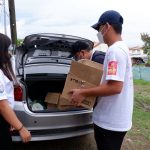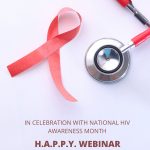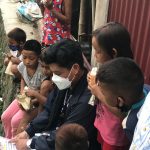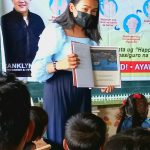The country is riddled with social issues such as poverty, discrimination, and bullying. Although measures have been taken to solve these problems, they aren’t going to be solved overnight. In order to fully overcome these obstacles, the efforts to do so must be sustained, passing from one generation to the next.
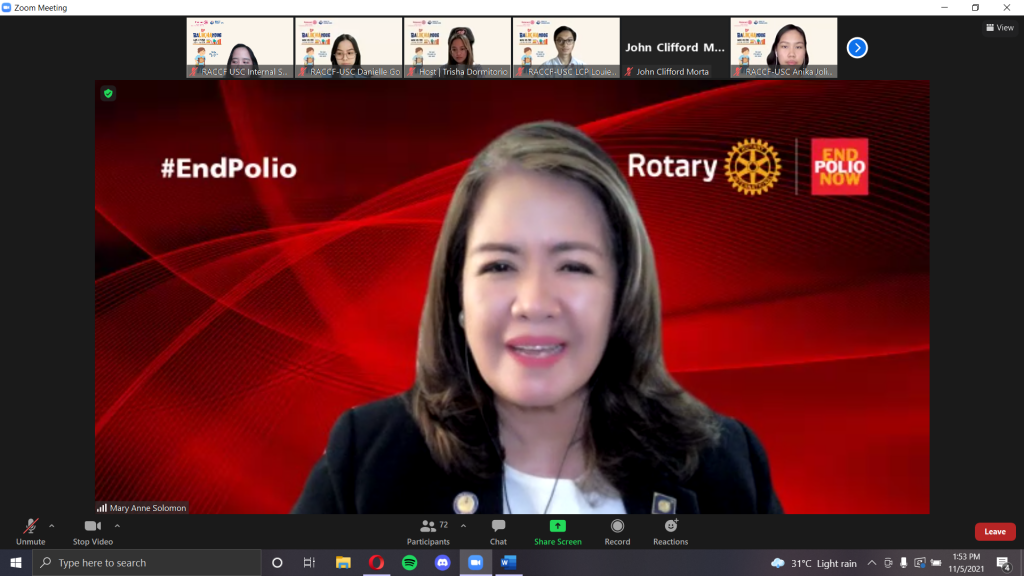
To contribute to these efforts, the Rotaract Club of Cebu Fuente – University of San Carlos initiated the baLIK-HAndog project, which seeks to advocate for social change through the creation of children’s storybooks. It magnifies the Filipino word “likha” meaning ‘to create’ or ‘to make; balik-handog means “to give back”. The project was initiated last year with the first book, entitled “The Turtle’s Shell”, written by Rtr. Michelle Manglapus and illustrated by Rtr. Edison Amodia, seeking to inspire children to accept their own differences and use them to their advantage. This year, the book, entitled “Leo’s First Day,” was written by Rtrs. Clara Alosbaños, Michelle Manglapus, Jianne Yu, and Bryan Sanchez, and illustrated by Rtrs. Edison Amodia, Glaze Olmedo, Aljean Uyan, and Eliah Zamoras. It aims to teach children the dangers of Polio in one’s life in a way that is understandable for them. By doing so, the people behind the project hope to raise children’s awareness of Polio and take it more seriously, as the disease is more harmful to young children.
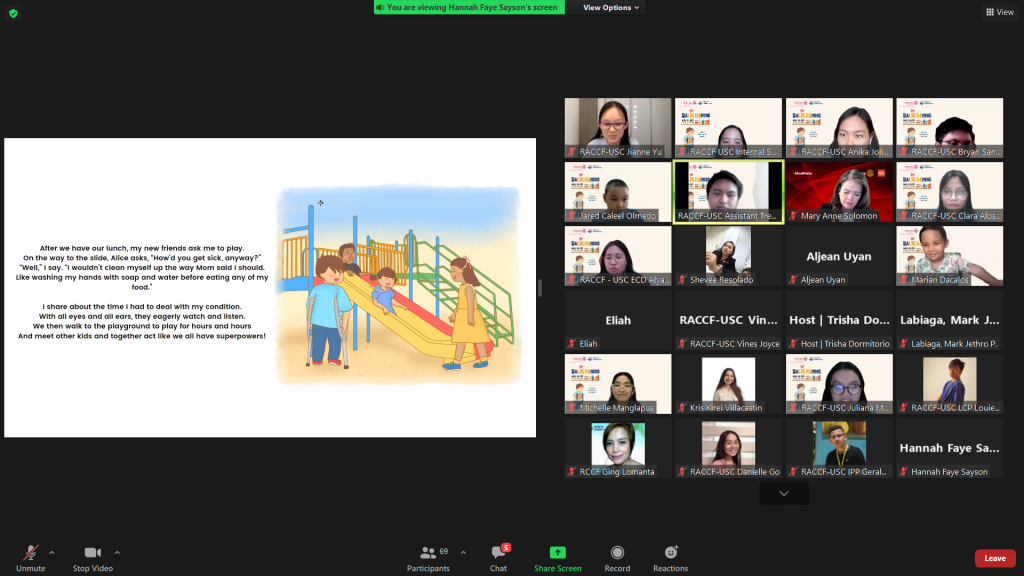
Last November 5, 2021, the virtual book launching event took place, which invited youth from the local community and organizations as they are the main beneficiaries of the project. Inspiring talks were given by key speakers Mary Anne Alcordo-Solomon, the End Polio Now Zone Coordinator of Zone 10A and Corazon B. Clarin, President of the organization, Women with Disability Leap for Economic and Social Progress.
EPNZC Mary Anne Alcordo-Solomon spoke about the Rotary International’s End Polio Now Campaign, highlighting the organization’s efforts to eradicate the Polio disease globally over the course of decades. The Rotary’s efforts have led to the successful containment of the disease in a few countries across the globe. However, she cautions, despite this, we must remain wary of the dangers of the disease and continue to work towards its complete eradication or, as the speaker said, “Polio is just a plane ride away. Until we end polio, we cannot be complacent.”
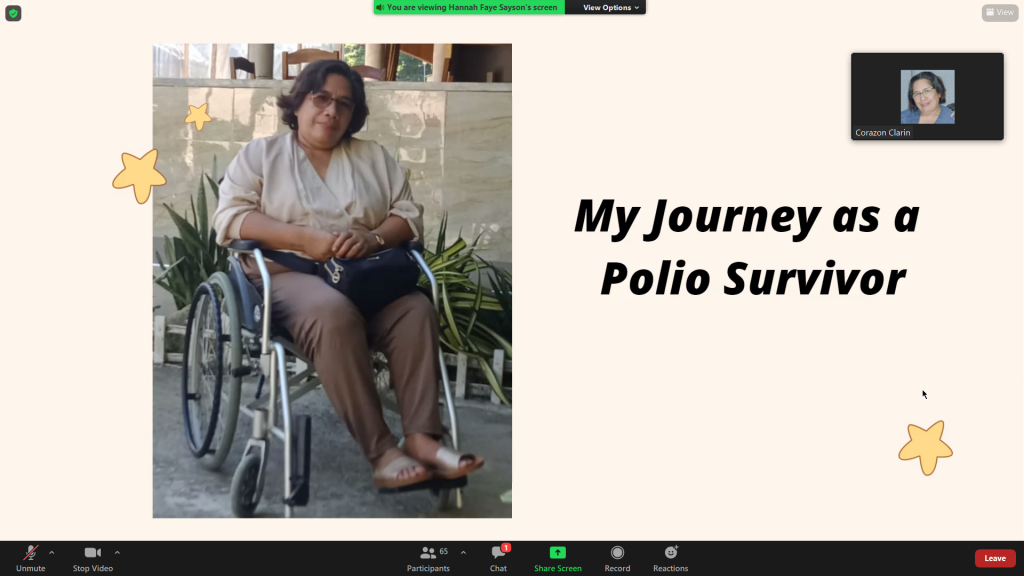
Next, an immersive storytelling session of the book was carried out by one of its illustrators, Rtr. Edison Amodia, bringing along the audience with Leo, a polio survivor, on his first day of school. The audience was captivated by the experience, with one of the kids saying that the storytelling and drawings were very nice. Past President Rtr. Gerald Nitz Ponce shared that he hopes the book and its inspiring story would be shared to more kids in the future.
Finally, the second key speaker, Corazon B. Clarin, shared her story of struggle with the Polio disease. She talked about how she got the disease when she was less than a year old, which led to her being unable to walk until the age of 7. However, she also shared that, despite her disabilities, she was able to live out a happy childhood because of strong support from her family who didn’t treat her disability as a hindrance. Now, she’s reciprocating that support to her disabled brothers and sisters by giving them strength and support through her program, ending her talk and the virtual book launching event on an optimistic and extremely motivational note.
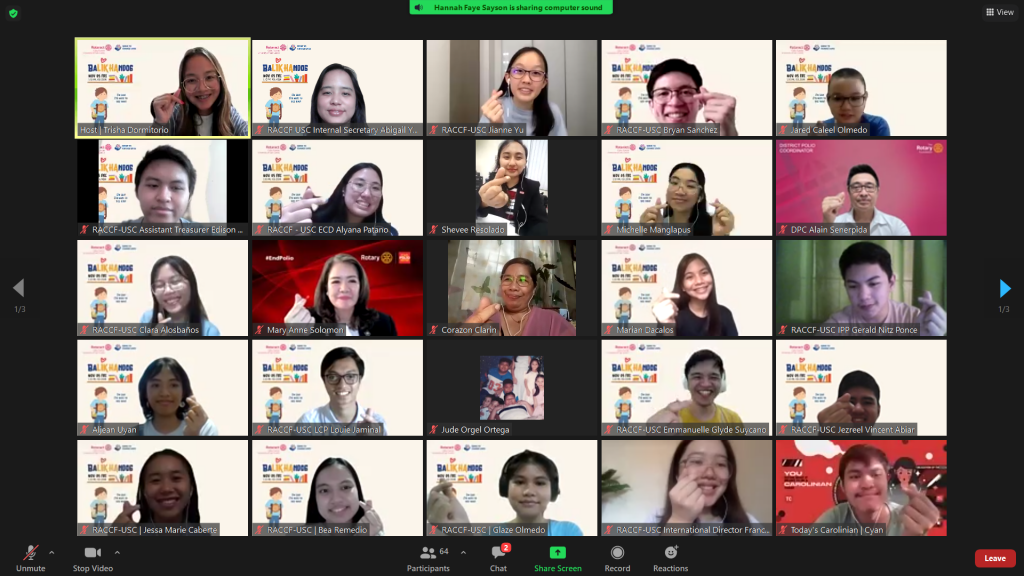
Through these storybooks, the baLIK-HAndog project hopes to not only raise children’s awareness of current social problems in an understandable way, but also inspire them to seek for social change as they grow older and become future leaders, passing on the drive and desire to solve social problems from one generation to the next.

